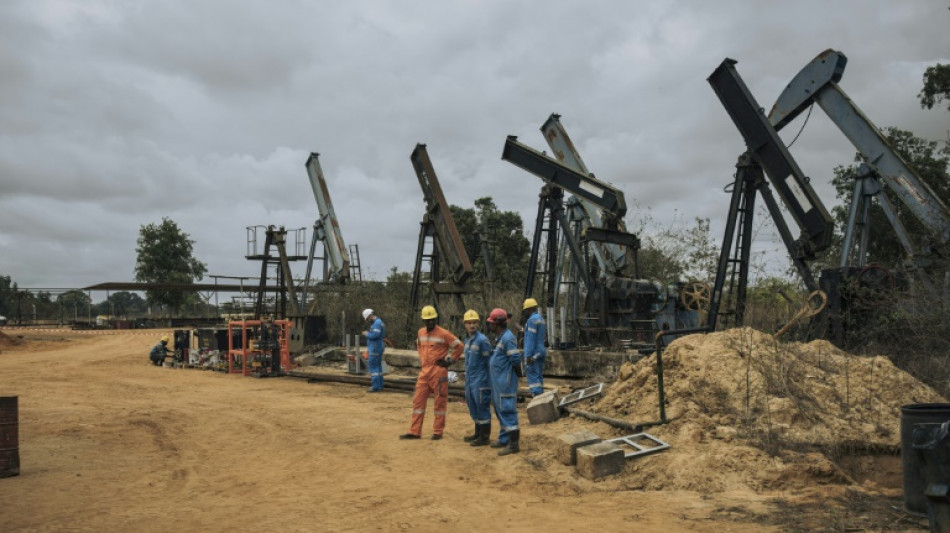
-
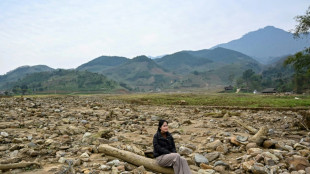 Vietnam village starts over with climate defences after landslide
Vietnam village starts over with climate defences after landslide
-
'Happiness, love' at Moonie mass wedding after Japanese court blow

-
 Veteran Chinese astronaut to lead fresh crew to space station
Veteran Chinese astronaut to lead fresh crew to space station
-
Pilgrims gather as Pope Francis begins lying in state

-
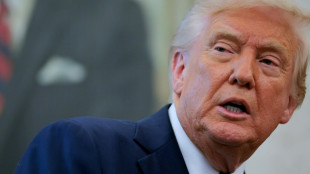 Asian markets rally as Trump comments ease Fed, China trade fears
Asian markets rally as Trump comments ease Fed, China trade fears
-
Saudi 'city of roses' offers fragrant reminder of desert's beauty

-
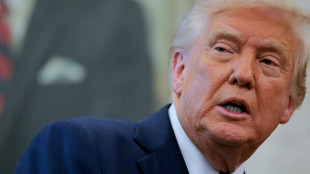 Trump says won't fire Fed chief, signals China tariffs will come down
Trump says won't fire Fed chief, signals China tariffs will come down
-
India hunts gunmen who massacred 26 in Kashmir tourist hotspot

-
 'No one else will': Sudan's journalists risk all to report the war
'No one else will': Sudan's journalists risk all to report the war
-
UK hosts new round of Ukraine talks

-
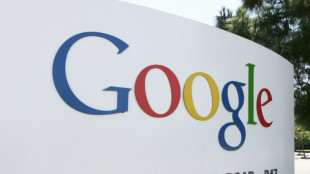 Trial testimony reveals OpenAI interest in Chrome: reports
Trial testimony reveals OpenAI interest in Chrome: reports
-
Tokyo's newest art star: one-year-old Thumbelina

-
 Ronaldo hunts Asian Champions League glory in Saudi-hosted finals
Ronaldo hunts Asian Champions League glory in Saudi-hosted finals
-
Scientists sound alarm as Trump reshapes US research landscape
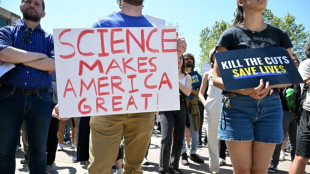
-
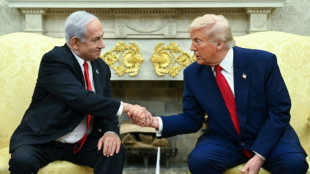 Trump's return boosts Israel's pro-settlement right: experts
Trump's return boosts Israel's pro-settlement right: experts
-
Trump solo: first lady, children out of frame in new term
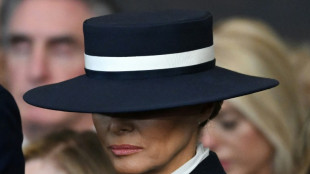
-
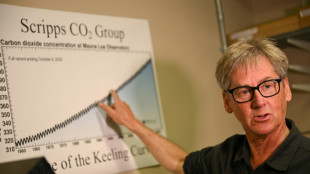 Climate watchers fret over Trump's cut to sciences
Climate watchers fret over Trump's cut to sciences
-
Moving fast and breaking everything: Musk's rampage through US govt
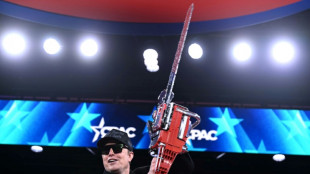
-
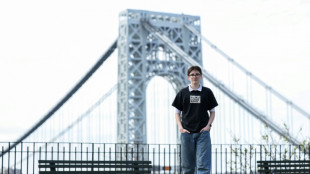 'Everyday attack' - Trans youth coming of age in Trump's America
'Everyday attack' - Trans youth coming of age in Trump's America
-
A stadium and a jersey for Argentina's 'Captain' Francis

-
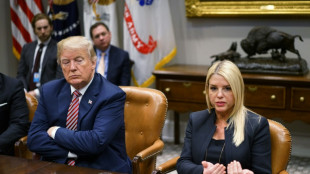 New Trump task force vows to root out 'anti-Christian bias'
New Trump task force vows to root out 'anti-Christian bias'
-
Auto Shanghai showcases new EV era despite tariff speedbumps

-
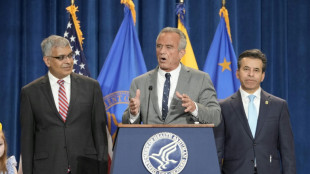 Trump's administration moves to scrap artificial food dyes
Trump's administration moves to scrap artificial food dyes
-
Musk to reduce White House role as Tesla profits plunge
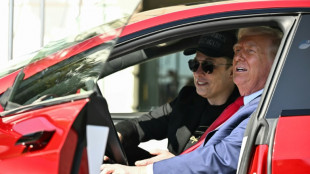
-
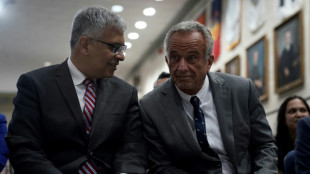 US official backs off promise to solve cause of autism by September
US official backs off promise to solve cause of autism by September
-
Guardiola joy as Man City go third after dramatic win over Villa

-
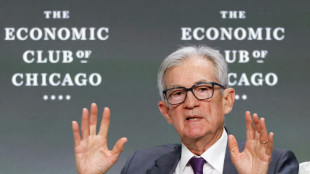 Trump says has 'no intention' of firing Fed chief
Trump says has 'no intention' of firing Fed chief
-
Jury finds New York Times did not libel Sarah Palin
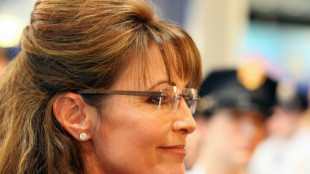
-
 UN appoints envoy to assess aid for Palestinians
UN appoints envoy to assess aid for Palestinians
-
Celtics star Tatum 'doubtful' for game two against Magic

-
 Former England star Flintoff reveals mental battle after car crash
Former England star Flintoff reveals mental battle after car crash
-
Defending champion Korda chases first win of season at Chevron Championship

-
 Olmo fires Liga leaders Barca past Mallorca
Olmo fires Liga leaders Barca past Mallorca
-
Nunes strikes at the death as Man City sink Villa to boost top-five bid

-
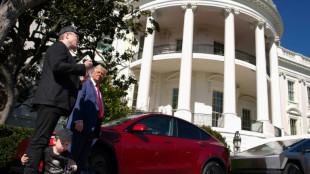 Tesla says profits plunge 71%, warns of 'changing political sentiment'
Tesla says profits plunge 71%, warns of 'changing political sentiment'
-
WHO announces 'significant' layoffs amid US funding cuts
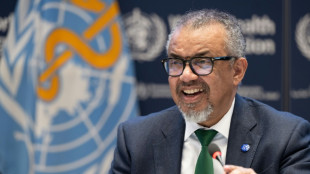
-
 PSG draw with Nantes to stay unbeaten in Ligue 1
PSG draw with Nantes to stay unbeaten in Ligue 1
-
Trump's administration moves to ban artificial food dyes

-
 Gunmen kill dozens of civilians in Kashmir tourist hotspot
Gunmen kill dozens of civilians in Kashmir tourist hotspot
-
US Treasury chief expects China tariff impasse to de-escalate
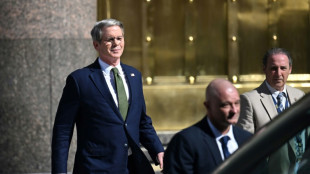
-
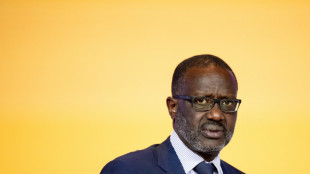 I.Coast opposition leader Thiam barred from presidential election
I.Coast opposition leader Thiam barred from presidential election
-
Top US court leans toward parents in case on LGBTQ books in schools

-
 At least 24 killed in Kashmir attack on tourists
At least 24 killed in Kashmir attack on tourists
-
Rahul powers Delhi to big win over Lucknow in IPL

-
 Colombian cycling star 'Lucho' Herrera denies murder conspiracy
Colombian cycling star 'Lucho' Herrera denies murder conspiracy
-
Trump, Zelensky to attend Pope Francis's funeral Saturday

-
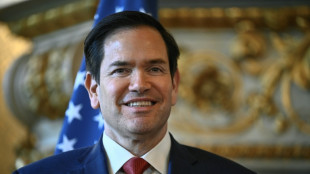 US State Department to cut positions, rights offices
US State Department to cut positions, rights offices
-
Ukraine ready for direct talks with Russia only after ceasefire: Zelensky
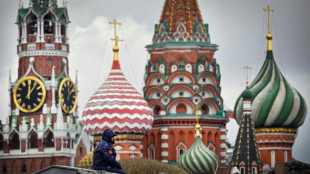
-
 Myanmar Catholics mourn pope who remembered their plight
Myanmar Catholics mourn pope who remembered their plight
-
Pope's Vatican 'family' pay tearful respects


After Davos, a race for money to stop climate change
US climate envoy John Kerry bluntly summed up in one word what the planet needs to avoid a global warming catastrophe at the World Economic Forum this week: money.
The annual meeting of the global elite in the Swiss Alpine resort of Davos was a chance for top government officials, CEOs, academics and campaigners to debate how to tackle the climate crisis.
The bill is monumental: Kerry and others warned that trillions of dollars were needed to speed up the world's efforts to reach net-zero carbon emissions by 2050 and limit warming to 1.5 degrees Celsius.
But the week-long forum exposed fault lines over how to meet those targets at a time when the world faces a costly war in Ukraine, an economic downturn, soaring inflation and a cost-of-living crisis.
The US government is pouring $369 billion dollars into its green energy transition through tax incentives and subsidies for electric cars and other technology under its landmark Inflation Reduction Act (IRA).
Kerry warned however that public funds alone were not enough, as he used his Davos appearance to press his case that the private sector has a major role to play -- if firms can be shown there is money to be made.
The former US secretary of state admitted that he sounded like the corporate raider Gordon Gekko from the film "Wall Street" when he said earlier this week that "money, money, money, money, money, money, money" was needed to meet the 1.5C target.
"The magic that we need is to unleash those trillions of dollars that are looking for good investments, but they're looking for bankable investments," Kerry said.
But at the same panel, Ecuadoran climate activist Helena Gualinga said profit was being placed above the health of the planet.
"When I hear a lot of these conversations I think it's very business first, and then we'll deal with climate and then we'll deal with biodiversity loss," she said. "That needs to be reversed."
- US-EU spat -
Other disagreements returned to the fore in Davos.
While many praised US President Joe Biden's IRA programme as a game-changer for the climate crisis, Europeans continued to denounce what they describe as discriminatory subsidies favouring US businesses.
The two sides held talks in Davos as they seek to find a compromise.
"We're friends," Kerry told AFP. "We need to work together and I think there's a lot of listening going on and discussions to address those things that are concerns."
European industrialists said the EU should step up its game and respond with its own version of the IRA if it wants to remain competitive.
"Yes, we are going to the US. We are taking the cheque from IRA, and fair enough," Ilham Kadri, CEO of Belgian chemicals giant Solvay, said at an event hosted by Belgian Prime Minister Alexander De Croo.
European Union chief Ursula von der Leyen announced plans in Davos for a special fund and a "Net Zero Industry Act" to defend Europe's industrial base from US and Chinese industrial subsidies.
- Western 'hypocrisy' -
IMF chief Kristalina Georgieva voiced concerns that Western efforts to use public money to step up private investment could be detrimental to developing nations, which are the most exposed to the effects of climate change.
"If we are to strive to get the industrialised world clean and we don't think about the emerging markets, we are all cooked," she said Friday.
Wealthy nations have already fallen behind on their pledges to deliver $100 billion per year to help developing countries green their economies and build resilience against future impacts of climate change.
Climate financing will be among the core issues to be discussed at the COP28 summit hosted by the United Arab Emirates later this year.
The president of the Democratic Republic of Congo, Felix Tshisekedi, slammed the "hypocrisy" of criticising his country for wanting to exploit fossil fuels for its development while wealthy polluters have failed to provide the money promised to help its energy transition.
"I think this money would allow us to get the technology faster if everyone kept their word," Tshisekedi said.
O.Lorenz--BTB


